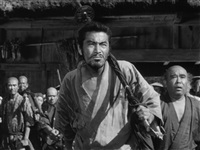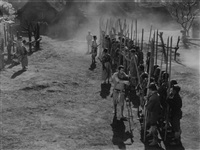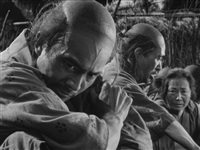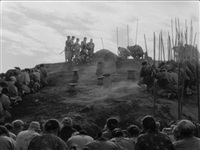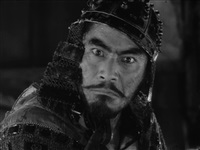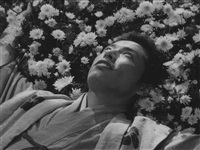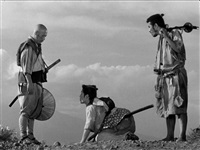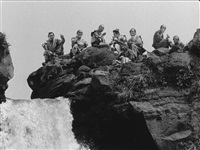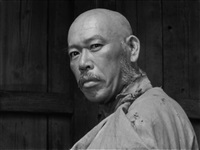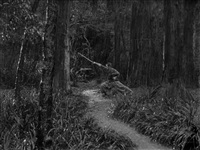Seven Samurai (1954)
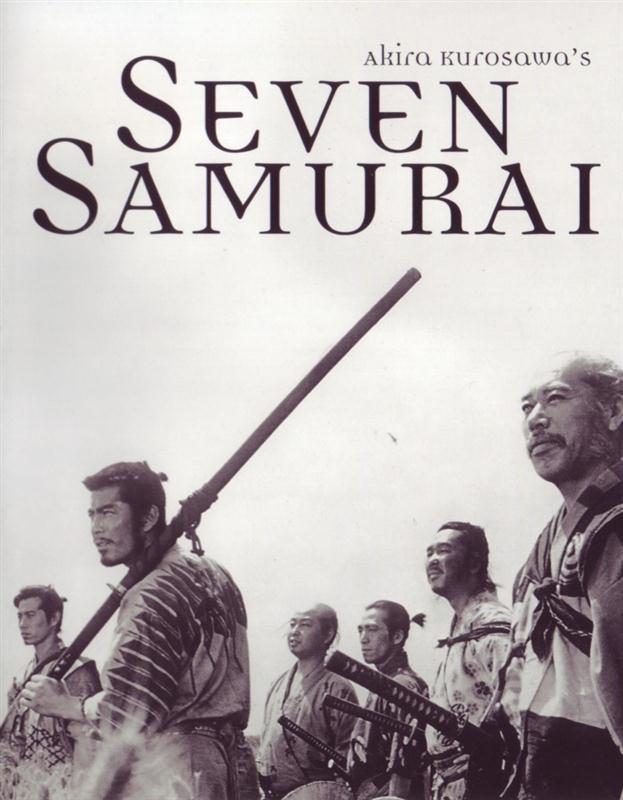
Well, if you haven't seen Seven Samurai then you're not really qualified to call yourself a film fan, basically. One of the most influential movies of all time, that still holds up extremely well nearly 50 years later.
Akira Kurosawa's epic tale of heroism and barbarism set the standard in so many ways it's hard to imagine that any modern film does not show its influence in some way or other. A great script, great characters, mostly great acting, splendid cinematography and action sequences that wrote the book about how these things should be filmed. Even now, after so many have tried to imitate or beat it, Seven Samurai remains a totally gripping 3.5 hour experience.
Akira Kurosawa is one of the gods of Cinema - men who seem to have been born to make films, who have it in their blood. People like Alfred Hitchcock, Stanley Kubrick, King Hu and Steven Speilberg, who make it look easy... who so obviously "get it". In this pantheon, Kurosawa is perhaps the daddy of them all, however, and Seven Samurai is one of his finest moments.
The scale of the production is remarkable - to undertake making such an epic in post-war Japan was a feat in itself. The cast of dozens of inhabitants of a villiage specially built for the movie, the 40 bandits and their horses, all the costumes, the armour, the weapons. Few directors could have brought all of this together and still paid such attention to the smallest of details in script and scene. Credit must go to the team Kurosawa worked with too, I presume
The movie's setup became the template for many movies to follow, the most recent example that comes to mind being the excellent Korean period movie Musa, for example. A motley band of characters is assembled and placed in a situation where the odds are seemingly stacked against them, and each gets there chance to really shine, prove themselves and become something more than a normal man.
Kurosawa's Samurai movies all share a little bit in common, which is the depiction of the Samurai as some noble beast, different from the common and pathetic rabble of ordinary man. In Seven Samurai the farmers are a base lot, cowardly, selfish, vain, pathetic and treacherous. How he found actors with such miserable looking faces is a mystery in itself. In contrast, the Samurai embody all the qualities that humanity would generally like to believe define it (us). Brave, righteous, honest, strong and heroic. Toshiro Mifune's character stands in the middle and represents this difference - perhaps meant to suggest that mankind can strive to rise above his flaws, but mostly suggesting to me that the common man is basically a mess and we should learn to respect our betters. Kurosawa was definitely not a socialist, unless I'm mis-reading him wildly.
I'm sure many out there wonder, does a 50 year old black and white movie about Samurai really have any interest or relevance to us in the 21st century? The answer is a definite "Yes!". Seven Samurai shows us what cinema can be, what cinema is *meant* to be. It is moving picture as art in a way that the multiplex-fillers of today cannot possibly claim to be. It's a film that satisfies on many different levels, and still provides a bench mark which today's film makers could and should use to evaluate their own contributions. True, few out there will ever be able to claim they've made a film that rivals Seven Samurai in scope or beauty, but this *is* what every director should aspire to! The sad thing is, I just can't see a project like this ever coming out of the Hollywood studio system, where art is just another commodity and marketing is the new god :(
Cast
Crew
| Director | |
|---|---|
| Production Company | |
| Writer | |
| Producer | |
| Editor | |
| Cinematographer | |
| Art Director | |
| Soundtrack |
